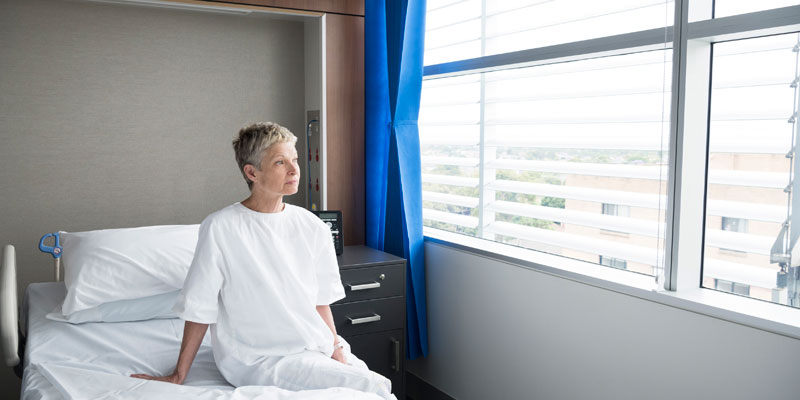Waiting For the Other Shoe to Drop
"Our waiting times will increase and it'll backlog."
"We have a good system in many ways but our waiting times have always been the bane of our system."
"It was bad [his personal experience]. I needed surgery and the surgery made a big difference in my life."
"We aren't going to bring in more doctors to all of a sudden do twice as many procedures."
Dr.Sandy Buchman, president, Canadian Medical Association
"Wait times can, and do, have serious consequences such as increased pain, suffering, and mental anguish."
"Several studies have documented the medical consequences of long wait times for scheduled cardiovascular and cancer surgery, however, those waiting for other treatments such as hip and knee replacements may also experience greater pain and poorer outcomes. In many cases, it’s possible that previously treatable conditions may turn into more permanent debilitating conditions that may also be more expensive to eventually treat."
Bacchus Barua, associate director, health policy studies, Fraser Institute
 |
| Surgery backlog from COVID-19 could reach 100,000 |
"[The pandemic has put the health-care system in an] impossible situation."Thinking hopefully ahead to the time when the immediate COVID threat has abated, doctors are concerned over how they will be able to manage the ever-lengthening backlog of elective surgeries, temporarily cancelled to make room for hospitals to set up their COVID emergency setups to face the worst-case scenario of a rush on beds and ventilators, a scenario that has spectacularly failed to materialize in the proportions visualized, leaving operating rooms, surgeons and nurses idle while tension builds.
"[Patients whose procedures have been delayed are experiencing] a tremendous amount of anxiety."
"If you're going through cancer, your life has already been turned upside down and then this just adds to it. And we know that cancer is not stopping through the pandemic."
"The faster that we can get through the pandemic, the faster that the health-care system can be back to its normal state. It really will save lives."
Andrea Seale, CEO, Canadian Cancer Society
"The surgeons have been most worried. They're just seeing these waiting lists growing, and anxious patients are phoning back and worrying."
"Nobody's surgery is unimportant. It's just a matter of who ... is time-sensitive. Things like cancer surgery, cardiac surgery, transplants and other time-sensitive surgeries will have to be prioritized."
"And we'll also have to, somehow, gradually increase our capacity to catch up in the backlog and continue to deal with new patients coming in."
Dr. Shaf Keshavjee, surgeon-in-chief, University Health Network, Toronto
Non-urgent surgeries have been put off to a future date while the global pandemic has captured everyone's minds in preparation for its onslaught. 'Elective' refers to any procedure not considered to be immediately life-threatening. It can be inclusive of procedures required to treat serious medical conditions when the reality is that even under normal circumstances most patients in Canada wait for longer-than-optimally-recommended opportunities for surgery, according to the Canadian Institute for Health Information.
As it is, 75 percent of patients in the country received hip replacement surgery inside the recommended 182 days from when the surgeon agreed to the operation in 2019. Of patients requiring knee replacements, only 69 percent realized their surgeries within the recommended time frame, excluding the time it takes typically for a referral to a specialist, to begin with. This is a situation that has been sliding backward for years
Dr.Buchman himself is aware of the agony of waiting. He received a hip replacement five years ago, spending two years awaiting surgery from the time he saw his own doctor. Requiring such surgery cannot be considered life-threatening, but the long wait in an extended period of time impacts on a patient's quality of life, as well as that patient's state of mind, apart from the condition placing limitations on ability to work.
 |
Now, once hospitals begin moving those waiting lists into surgery, it is the handling of the lists and the catch-up required that worries doctors. Apart from the fact that some conditions that may appear relatively benign initially, such as gallstones, can develop into dangerous conditions like sepsis, or blood poisoning, left too long without medical attention. The reality is that doctors will not be capable of performing a greater number of surgeries than before the arrival of the pandemic.
Should, by some kind of medical alchemy doctors even be able to work faster than ever before with safety assured, there are limited operating rooms, where allocation of time is of the essence. The total number of procedures people were awaiting access for across the ten provinces in 2019 was over more than one million, according to the latest estimate from the Fraser Institute. Indicating that 2.9 percent of Canadians waited on treatment last year.
And then there is new federal guidelines to be taken into account, where provinces must consider whether hospitals have the capacity to handle those procedures on top of any new cases of COVID-19 (including access to protective equipment for workers) to enable them to reopen their economies.
| VGH surgeons perform a kidney transplant, the type of surgery for which patients will have to wait longer until a nursing shortage is rectified. |
Labels: Emegency Departments, Hospitals, Novel Coronavirus, Scheduling, Surgeries, Waiting Time
0 Comments:
Post a Comment
<< Home